It will not be possible to tackle the ongoing economic crisis with the proposed national budget for the upcoming fiscal year, the Center for Policy Dialogue (CPD) has said, describing it as "unrealistic".
The country is facing various macroeconomic challenges, including high inflation, low foreign exchange reserves, weak currency, reduced imports, and problems in power and fuel supply, CPD Executive Director Fahmida Khatun said in a post-budget briefing on Friday (7 June).
"There is discomfort everywhere. At such times, the projections made in the proposed budget are not in line with reality," she said.
The Business Standard Google News Keep updated, follow The Business Standard's Google news channel
She added that to relieve the poor and reduce inflation, social security programmes needed to be boosted as monetary policy alone is insufficient.
"A supportive fiscal policy was also needed in this regard. But such steps have not been made clear in the proposed budget. Some targets have been set to increase foreign exchange reserves. But it is not clear how that will be done," the CPD chief said.
Battling inflation
With an eye towards battling inflation, Finance Minister Abul Hassan Mahmood Ali on Thursday unveiled the Tk7.97 lakh crore proposed national budget for the fiscal 2024-25.
However, regarding inflation, Fahmida said an inflation target of 6.5% is very unrealistic. "Inflation was above 9% in May, so bringing it below 7% would be challenging without any targeted steps," she said.
She said more investment is needed to reign in inflation. In FY24, the total gross investment target was 31%, which later stood at 23.5%.
Fahmida said GDP growth is estimated at 6.8%, with total investment projected to increase from 31% to 33% of GDP, and private investment at 27.3%.
"However, it is unclear how this investment target will be achieved, especially since an additional Tk3,43,547 crore is needed," she said.
She also questioned the estimated 9% private sector credit flow, noting that the government is borrowing from banks and the investment environment is stable. In this context, she doubts the feasibility of increasing private sector investment with 9% credit growth.
Speaking at the question-answer session in the briefing, CPD's Distinguished Fellow Mustafizur Rahman said the proposed budget has no measures to provide relief to the common people from the onslaught of inflation.
He said, "If you calculate the inflation, the low-income who did not have to pay tax last time will have to pay tax this time as the tax-free limit has not been increased…Inflation has been more than 20% in the goods consumed by the low-income people. There is no proposal in the budget to provide relief to the common people."
Whitening black money
Speaking about the facility proposed for the legalisation of black money, Fahmida said the provision of whitening black money by paying only 15% tax and without any scrutiny is discouraging for those who pay taxes regularly.
"We have seen in the last few years that revenue collection does not increase much by giving this facility. Rather, it incentivises those with black money and discourages those who pay taxes regularly."
Under the proposed provision, black money can be legalised by depositing it in a bank or investing it anywhere, including the stock market, after paying a 15% tax, with no questions asked about its source.
This stands in contrast to the current Income Tax Act, where taxpayers can legalise black money by paying up to 25% tax plus a 10% penalty, with the risk of subsequent scrutiny by government agencies, dissuading many from utilising this option.
Mustafizur Rahman questioned why taxpayers would pay a 30% tax on legal income if they only have to pay 15% on illegal earnings.
He said the Awami League promised zero tolerance for corruption, tax evasion, and loan default. However, the budget proposals contradict this stance and the party's principles.
He expressed hope the government will align with its manifesto promises.
Social safety
Fahmida Khatun said that although coverage has been extended and allocations increased to 17.1% of the total budget, only 9% is allocated to social security programmes when excluding pensions, savings certificate interest, and agricultural subsidies.
While the government claims a 2.4% GDP allocation for social security, she said it is actually closer to 1.3%.
She also expressed concern over the 64% decrease in allocation for open market sales, and called for its increase to address the needs of both the poor and lower middle class.
Agricultural subsidies have also been reduced, despite the sector's importance for food security, she added.
Education and health
Famida mentioned that the education and health sectors have received significant allocations, with 11.9% for education and 7.8% for health.
However, the agricultural sector has been given less importance, she said. Besides, the proposed 0.7% of GDP allocation for the health sector is inadequate for the country's large population.
According to the CPD, the allocation for education has decreased compared to the GDP, ranking Bangladesh third lowest among 38 least developed countries. The country aims to spend 3.5% of GDP on education in the Eighth Five Year Plan but is currently far from that target.
Additionally, some revenue measures, like VAT on English schools and corporate tax on private educational institutions, may not be suitable and need reconsideration, she added.
Also, the increase in VAT on pens is deemed inappropriate, and scholarship reductions should be rectified, said the economist.
Economy
Fahmida Khatun said the budget deficit is estimated at 4.6% of GDP, with foreign loans and grants expected to bridge the gap.
However, the lack of a realistic estimate is concerning, suggesting a need for a more prudent approach, she said, adding that the revenue collection target for the next fiscal is ambitious, with a 27.3% growth.
"The primary domestic source for deficit financing is bank borrowing, which is planned to cover 53.7% of the total deficit, impacting the economy by reducing private sector loan availability. Additionally, foreign debt spending is set to increase to $3.2 billion next fiscal year, adding further strain on the government's finances," she added.
By FY25 end, foreign reserves are estimated to hit $32 billion, yet they're at $24.2 billion now, noted Khatun. Boosting reserves is crucial, but fixing the taka at 114 to the dollar hints at currency appreciation, conflicting with reserve growth goals.
Also, the government's projected debt at 38.6% of GDP, with rising foreign debt, seems detached from reality, said the CPD chief.
VAT and tax
She commended the increase in the maximum tax rate to 30%, viewing it as a positive step to enhance tax collection. This change reflects a progressive tax system, which she sees as beneficial.
However, the extent of benefits for consumers from duty concessions and VAT waivers remains uncertain. This may result in increased pressure on consumers, she said.
"Nevertheless, various initiatives to support domestic industrial development are positive," she added.
'Unoriginal budget'
CPD Research Director Dr Khandkar Golam Moazzem said the budget did not appear to be original but "an old budget from a new government."
"The expertise expected in the budget formulation under the leadership of the new finance minister and the home minister did not show," he added.
He expressed concerns over non-food inflation, driven by VAT on many goods and services, alongside rising fuel and electricity prices, which could worsen inflation. "Importers may benefit from duty exemptions, but supply chain reform initiatives are limited."
Towfiqul Islam Khan, senior research fellow, pointed out that while there have been changes in indirect tax exemptions, not much has been addressed regarding direct taxes.
"The revenue proposal reflects a strong push to increase revenue collection, aiming to prevent significant tax evasion and meet revenue targets," he said.


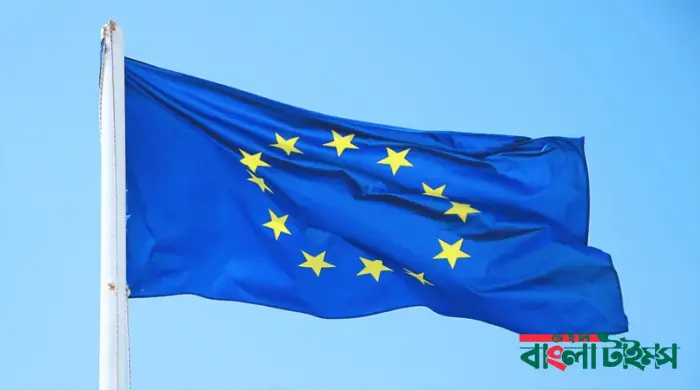
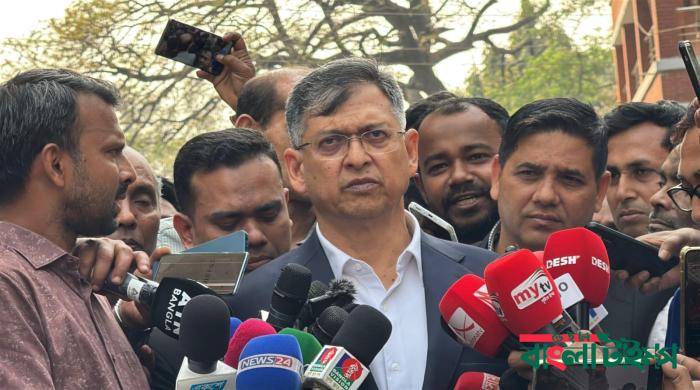
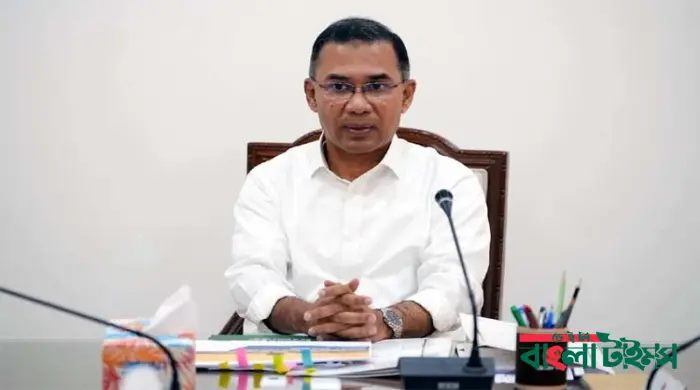
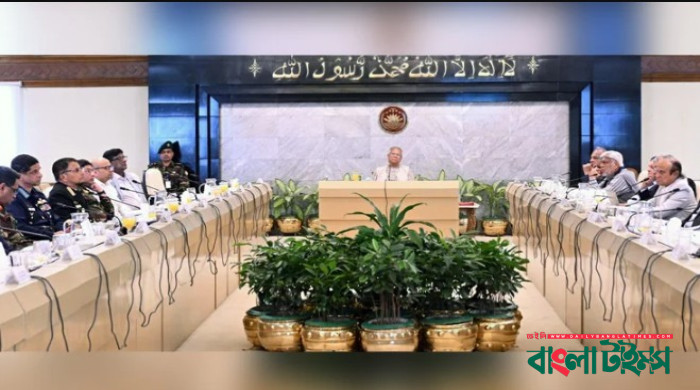

.jpeg)
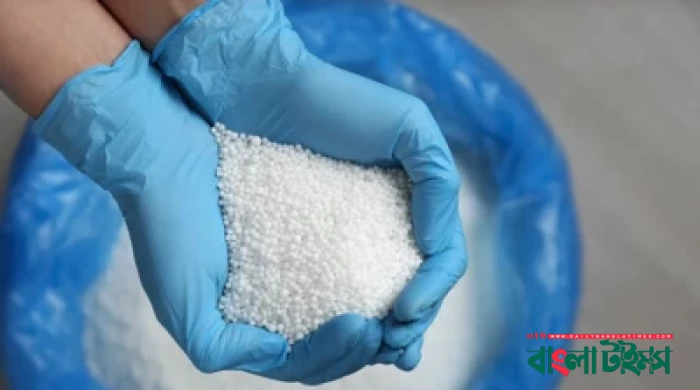


Leave a comment
0 Comments